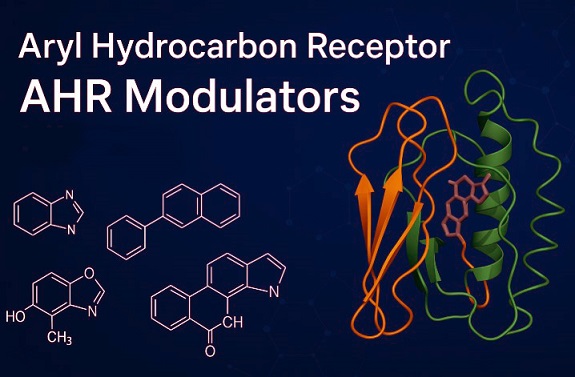Nikhil Prasad Fact checked by:Thailand Medical News Team Sep 17, 2025 4 months, 2 weeks, 2 days, 19 hours, 44 minutes ago
Medical News: Scientists are shedding new light on why COVID-19 hits some people harder than others. A new study highlights how a molecule in the body, called the aryl hydrocarbon receptor (AHR), may secretly worsen the infection. This discovery opens a new pathway for potential treatments and explains why patients with conditions such as obesity, diabetes, and high blood pressure are at greater risk.
 Aryl Hydrocarbon Receptor Activation Behind COVID-19 Damage and Long COVID
Aryl Hydrocarbon Receptor Activation Behind COVID-19 Damage and Long COVID
The research was carried out by experts from the Department of Nuclear Medicine, University of Pretoria and Steve Biko Academic Hospital in South Africa, the Nuclear Medicine Research Infrastructure (NuMeRI) at Steve Biko Academic Hospital, the Department of Biomedical Sciences at the Tropical Diseases Research Centre in Zambia, and the Department of Medicine at the University of Cape Town and Groote Schuur Hospital in South Africa. According to this
Medical News report, the findings provide vital clues about how the virus manipulates our bodies’ natural defenses.
How the receptor works in COVID-19
The aryl hydrocarbon receptor is a protein that normally helps the body respond to environmental chemicals and regulate immune functions. In COVID-19, however, the virus appears to hijack this receptor. Once activated, AHR sets off a harmful chain of events: it weakens the body’s antiviral defenses, fuels excessive inflammation, and disrupts metabolic balance. This dangerous mix allows the infection to worsen and spread more aggressively.
Researchers also discovered that this receptor is exploited by different strains of the virus. Even new and more immune-evasive variants continue to activate the same pathway. This makes AHR a consistent weak point the virus uses, suggesting that it could be a universal target for treatments across all current and future variants.
Impact on existing health conditions
For people with chronic illnesses, the risks are even higher. In those with obesity and diabetes, AHR activation intensifies problems like insulin resistance, oxidative stress, and blood clot risks. This directly raises the chances of heart attacks, strokes, and other life-threatening complications.
In the lungs, AHR contributes to excess mucus production and tissue scarring. This leads to breathing difficulties and may explain why so many patients struggle with lingering respiratory problems after infection. Scientists also point out that ongoing AHR activation may help fuel long COVID, leaving patients with symptoms such as fatigue, brain fog, and chronic inflammation for months after recovery.
Genetic and immune effects
The study shows that AHR does more than disrupt immunity—it can also change how certain genes behave. Through epigenetic changes, it can switch genes on or off without altering DNA sequences. These shifts weaken antiviral responses, affect how the ACE2 receptor functions, and may raise the risk of long-term complications like lung fibrosis or cardiovascular dise
ase.
Promising treatment possibilities
Because of its central role, AHR is now being explored as a new drug target. Several drug candidates are currently under study:
-
Tapinarof – a drug already tested for skin inflammation, shown to calm immune overactivation and reduce harmful inflammatory signals.
-
GNF351 – a compound that blocks AHR activity and has potential to restore normal antiviral defenses.
-
BAY2416964 – an experimental drug that interferes with the kynurenine pathway, which normally activates AHR, showing early promise in reducing inflammation.
-
Natural options – dietary compounds like indole-3-carbinol, found in cruciferous vegetables, may help regulate AHR activity. Probiotics and microbiome-based approaches are also being studied to keep the receptor balanced.
These treatments are still in various stages of development, but their ability to interfere with AHR gives doctors a new angle in the fight against COVID-19.
Conclusion
The discovery that the aryl hydrocarbon receptor plays such a powerful role in COVID-19 severity marks a turning point in understanding the disease. It explains why people with pre-existing health conditions are more vulnerable, why new variants continue to cause trouble, and why long COVID symptoms can persist. Drugs and dietary interventions that target this receptor could soon offer additional options to protect patients and reduce complications. Although more testing is needed to ensure safety and effectiveness, this breakthrough opens up a fresh frontier in treatment that could change how COVID-19 is managed for years to come.
The study findings were published in the peer reviewed journal: Frontiers in Molecular Medicine.
https://www.frontiersin.org/journals/molecular-medicine/articles/10.3389/fmmed.2025.1599785/full
For the latest COVID-19 News, keep on logging to Thailand
Medical News.
Read Also:
https://www.thailandmedical.news/news/aryl-hydrocarbon-receptors-help-rna-viruses-including-sars-cov-2-and-hiv-evade-the-immune-system
https://www.thailandmedical.news/news/aryl-hydrocarbon-receptor-identified-as-a-proviral-host-factor-for-sars-cov-2-replication-and-can-used-as-a-therapeutic-target-against-all-variants
https://www.thailandmedical.news/news/covid-19-news-hp163-identified-as-inhibitor-of-host-factor-aryl-hydrocarbon-receptor-ahr-that-aids-viral-replication-in-zika-and-possibly-covid-19
